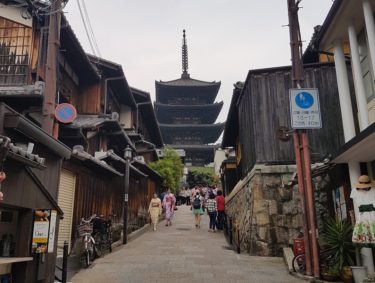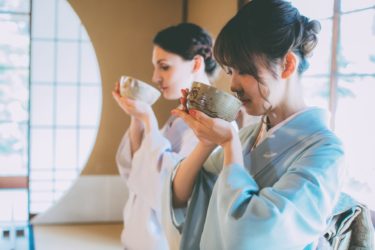Samurai is, now, all about games, like Samurai Shodown, or Samurai Jack. However, samurai is not all about fighting. There are so many things behind the fightings. The 7 principles are the ones that samurai had lived by to serve in society. Hara-kiri and seppuku, that are considered as an honorable death, but what is behind the action?
7 principles
1. 義-Gi
2. 勇-Yuu
3. 仁-Jin
4. 礼-Rei
5. 誠-Makoto
6. 名誉-Meiyo
7. 忠義-Chuu-gi
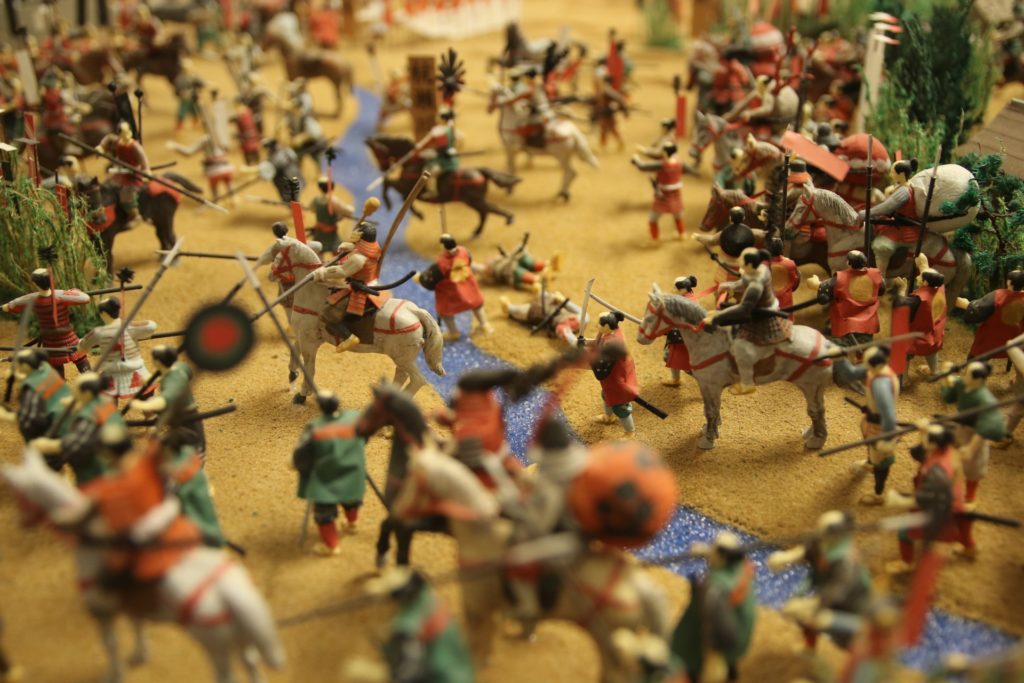
義-Gi
“Gi” is to do, think, and believe the right things. Even if you are smart or ranked No.1 in a school, it doesn’t matter. If you can’t follow the right thing, you are stepping out of the samurai’s way. Not even money, or “what’s in it for me?” mentality isn’t acceptable. Samurai has to have an iron heart to follow the belief that is inside of you and live by the faith literally no matter what.
Sometimes, “Gi” mistranslates into “duty,” but “Gi” is far from a duty that people need to follow forcibly as a social norm. It is from the inside out mentality to believe one’s own correctness without calculating advantages and disadvantages. So, doing a shortcut is, for instance, the worst behavior as a samurai.
Inherently, people can identify what’s right or wrong. Then, a calculation comes into play in your mind with ego based on the situation. Therefore, the first intuitive right decision is distorted by the ego and logical calculation, which is not a bad thing. However, in the world of samurai and the first principle they follow, which is the most important one for them, is to see the right thing, to sort out wrong things, and to stick to the right one.
Not easy to do it, but that’s the beauty of their spirit.
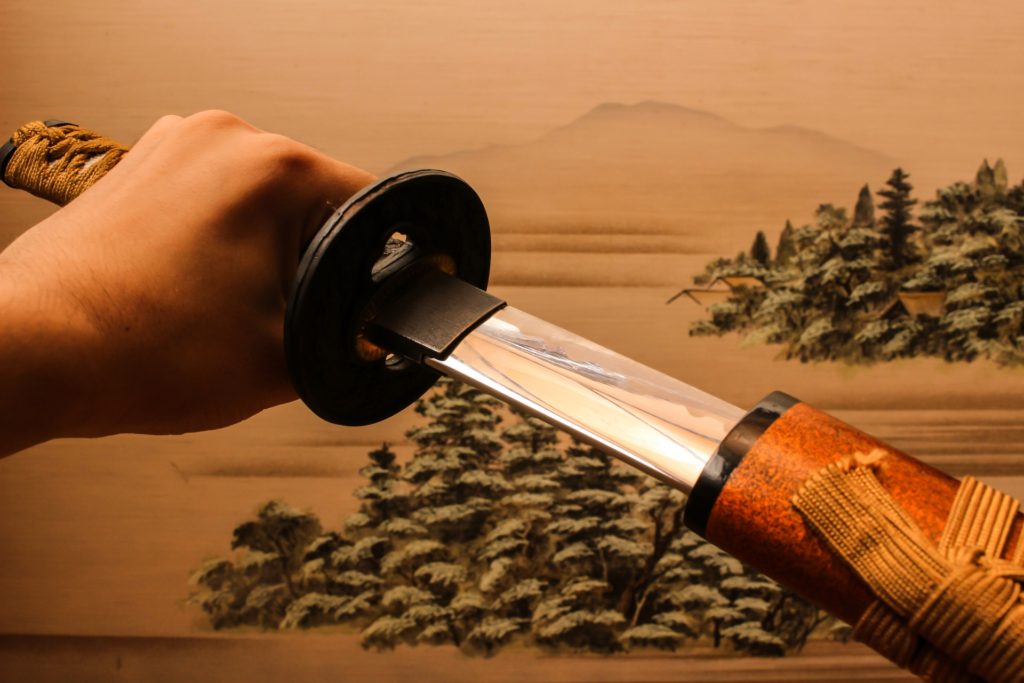
勇-Yuu
“Yuu is to live when you must live, and to die when you must die.” That’s the definition of “Yuu” by Tokugawa Mitsukuni, who was the governor of the Mito region in 1628.
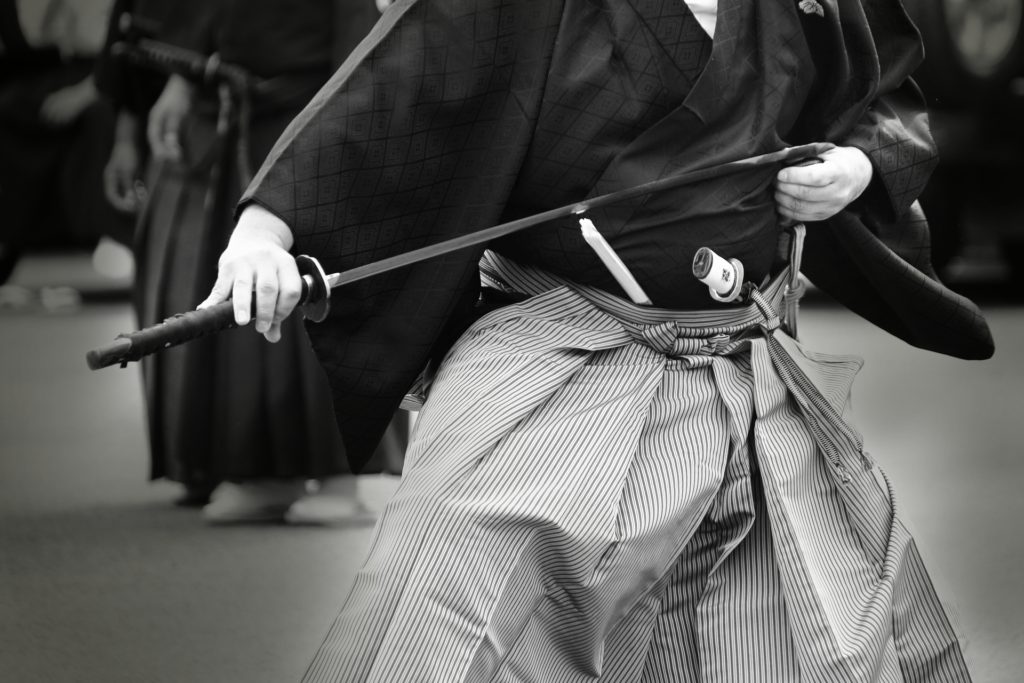
“Yuu” can directly translate to courage. There are two kinds of courage as Yuu. One is the courage to follow “Gi.” The other is the courage to inadvertently act and behave by taking risks, which samurai should not take. “Yuu” must be performed based on “Gi” in the first place. To have the courage to stick to “Gi,” samurai has to be mentally and physically strong in the worst-case scenario. If one is mentally immature, he won’t be able to think correctly, and if one is physically immature, he won’t be able to act and fight properly. Samurai has to have both, and the two aspects are equally essential.
You have to have courage, but courage has to be the right courage to follow the right thing. Otherwise, you end up dying when you are not supposed to die.
仁-Jin
“Jin” is the appropriate compassion or empathy. Date Masamune, the famous samurai during the Sengoku period around 1400, describes “Jin” as “polarizing to “Gi”, you become headstrong. Polarizing to “Jin,” you become weak.”
Samurai has to have empathy for those who lost a war or fight. Samurai, without kindness, isn’t the way they should be. Samurai has to think and understand others more than they know themselves. That is the mandatory mentality to become a leader as a samurai.
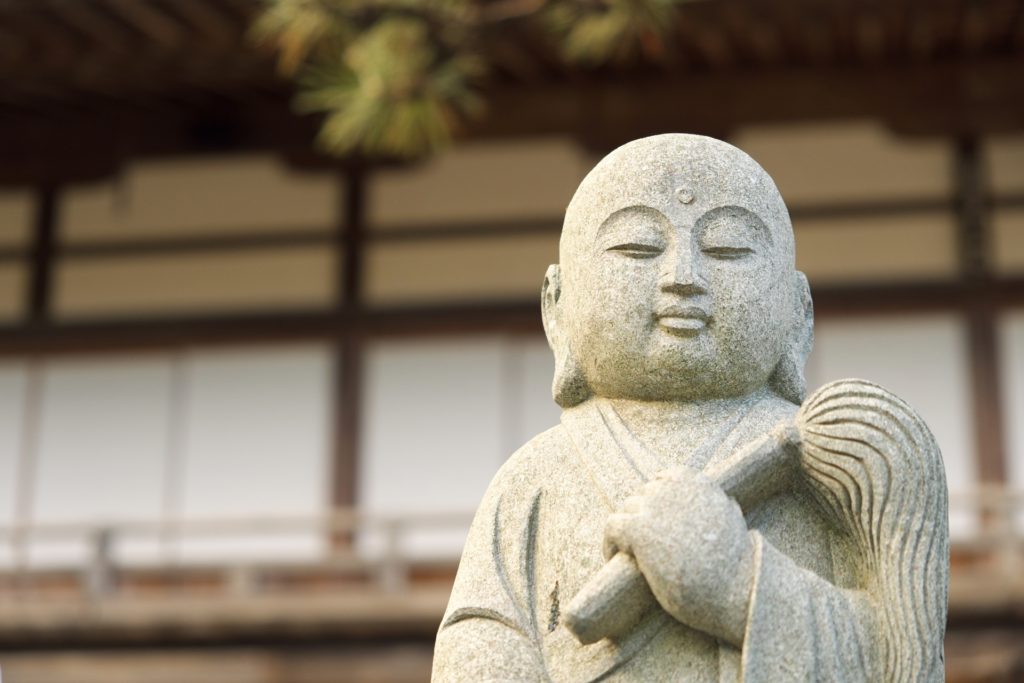
Samurai has to embrace the difference and uniqueness of each person. Some say “Jin” is similar to “love.” You have to balance “Jin” and “Gi” to stay strong and to make the right decision, and most importantly, to live as a human being.
礼-Rei
Manner or etiquette, if I translate this word correctly. Japanese bow, the Japanese take their shoes off, Japanese don’t cut a line, and so on. These are the behaviors based on the manner. Rei is what is behind the manner.
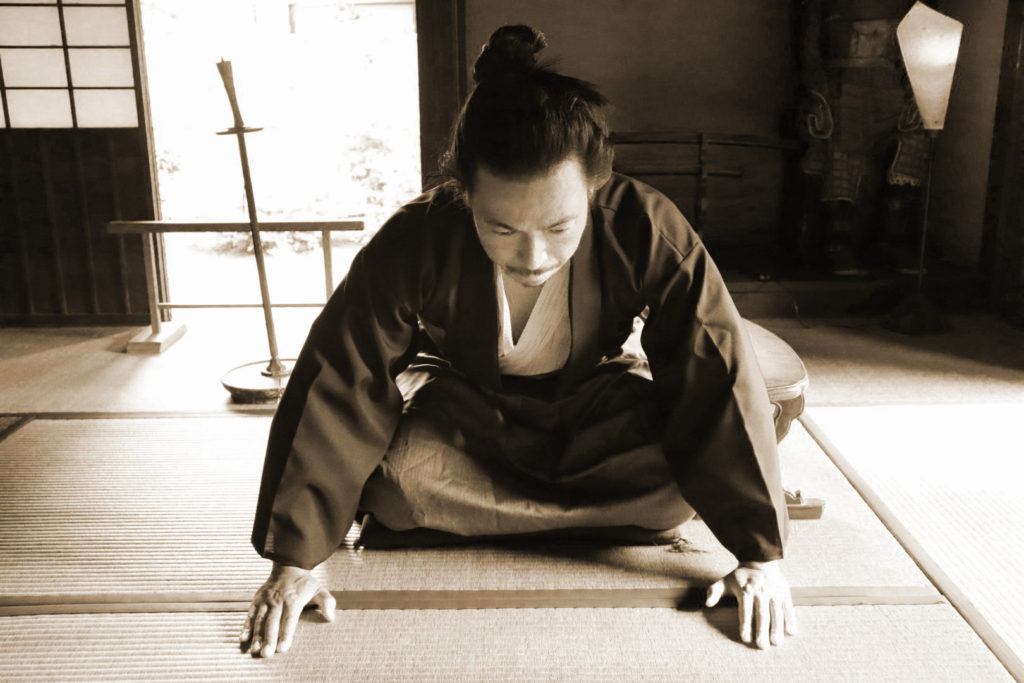
“Rei” is to respect the right things. “Rei” is to train your mind to stay calm and still, and to understand when to act. For example, if one is sitting still, samurai should not move his sword. Samurai has to wait until he gets up and ready to fight. That is the form of “Rei.” It is not measured by winning or losing, but by acting and behaving right.
In Japan, when we send a gift to someone, generally, we put the sentence like “tsumaranai monodesuga” means “this isn’t worthwhile to give, please accept it.” Then, recently people say you should be proud of what you give. You shouldn’t be ashamed of what you give as a gift.
To follow “Rei” precisely, the focus is always on the others, not you, nor your gift. “Tsumaranai monodesuga” remark is to respect the person is remarkable and outstanding, so this gift might not be the right one to give, but just the form of my gratitude, it would be great if you can accept.
In our daily life, if you are behaving rudely, we call it shitsu-rei/失礼, meaning that you lost “Rei.” Don’t loose “Rei.”
誠-Makoto
“Makoto” is to take responsibility for what you say. If you said once, never flip it. In the world of samurai, dishonesty is the worst behavior and must be avoided. Samurai has to be strong. To show dishonesty and simply lying is considered as what losers do.
Nowadays, we have paper contracts and stamps to guarantee what we agreed with, but in the days of samurai, there was no contract and rule to write a thing down because if one promise it, in any given situation, achieve it or die. Even writing things down on a paper is extremely disgrace to samurai. That is to ignore “Makoto.”
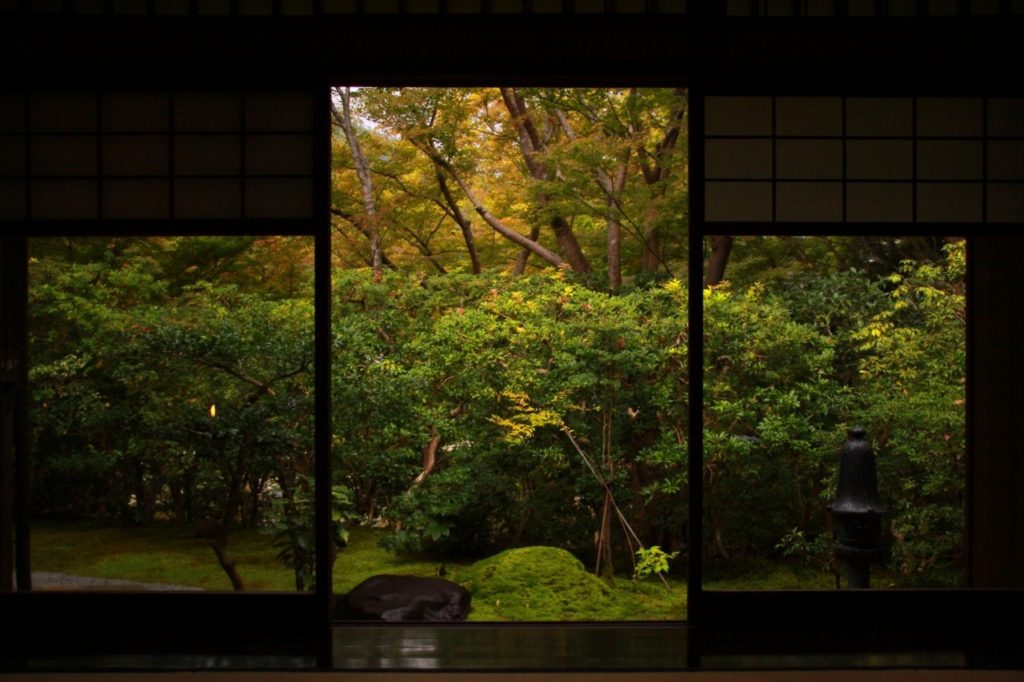
There were so many samurai who did hara-kiri, the ritual suicide, because of playing double tongue.
This is very understandable because when you lie, it spoils you from inside. To stay clean mentally, to fight with the best condition physically, the internal state of mind is utterly important. It is not the matter of someone who was tricked or lied, but more on the one who lied and tricked. It eventually reflects back to you and spoils in the long run.
名誉-Meiyo
Honor isn’t the right word to break it down. It is more philosophical. 名 is your name. You live by your name, and that has to be recognized and honored by society. To do that, you have to understand yourself and the meaning of your being in this world.
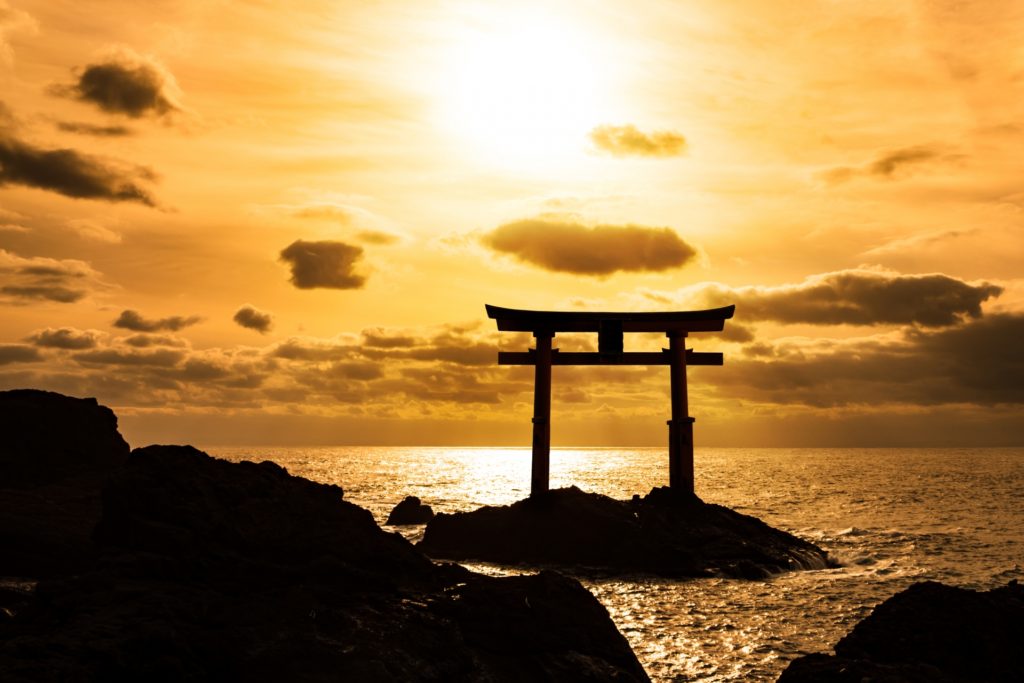
Why are you here? What is the purpose of living? What do you live by? What is your life is for? To answer these questions, you understand yourself first. Without crystal clear self-awareness, it is almost impossible to remember who you were, are and will be.
People had lived by his “Meiyo.” Not for power, money, nor even knowledge. To properly translate “Meiyo,” it is a mission or vision. You understand who you are and what you are best at, then find out the purpose of your life through bold mission or vision to go for.
That mission and vision will live on, even though you passed away.
忠義-Chuu-gi
“Chuu-gi” is to follow the order of the country, on the other hand, this isn’t to be loyal to its power or leader. “Chuu-gi” isn’t also to be a slave to its authority. This isn’t a forced loyalty by rules.
Samurai has to follow the order of the leader. However, if that order is misguided or misinterpreted, they have a right to disagree. The disagreement is based on one’s “Gi” as an individual. That disagreement has to be mixed with the above all 6 principles combined.
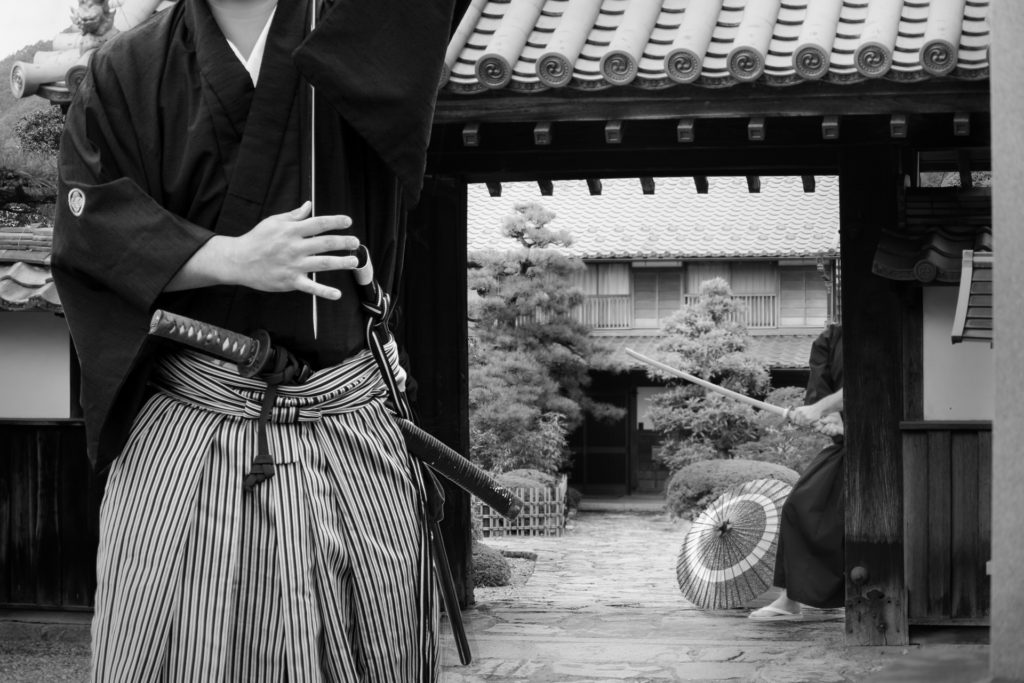
You need to differentiate what is right or wrong, to have the courage to follow what you think is right, to have the empathy to understand the other person more than they do, to respect the person’s background, experience, and knowledge, to accomplish what you say, and to have a bold vision and mission based on the clear self-awareness.
This “Chuu-gi” focuses on an individual right rather than keeping the power and authority. This is the proactive actions of people with highly disciplined manners. Understanding all 7 principles, not only by samurai, but also by the leaders who are in power, their decisions cannot lose the right trajectory.
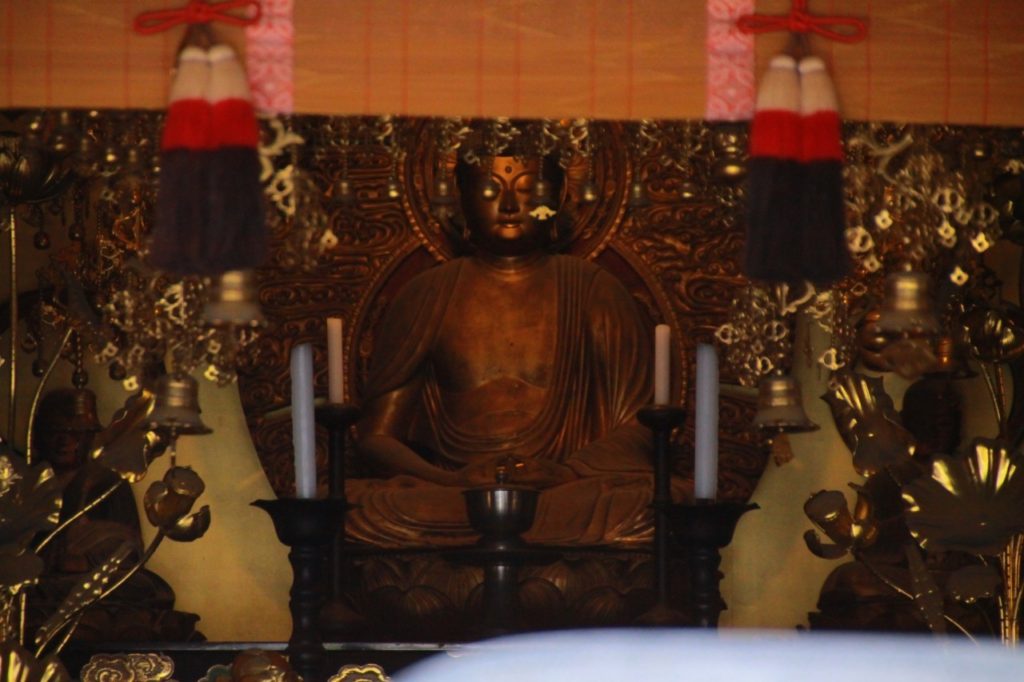
These samurai principles are not one quick fix formula that changes your life overnight. This is the long-term oriented way to live your life slightly better than yesterday. Apply things that are only relevant to you, then your day becomes a little bit better than yesterday, that’s the way Samurai had been doing over 100 years from now.
Notes
Photo credit: ACworks Co.,Ltd., @seankgt
Reference: 神さまと神社―日本人なら知っておきたい八百万の世界、武士道(新渡戸 稲造)

